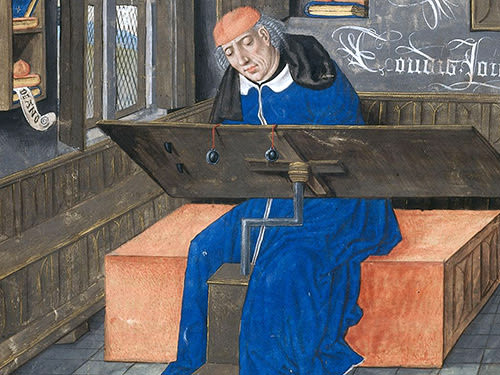Let's take a journey through society of medieval Europe to discover the rich palette in which reading manifested.
We begin in the monasteries, where the written Latin word (Latinitas) was cultivated in the early centuries of the Middle Ages, and continue to the noble courts of the High and Late Middle Ages. The attitudes of nobility towards reading changed during the first half of the Middle Ages: the ability to read and write was among the skills civilised knights and damsels should possess. Their interests led to the creation of new literary genres: courts were the birthplace of courtly literature (hence the name).
From there, we move to cities, where the growing class of self-assured merchants, craftsmen and patricians looked at courts for inspiration and examples, while at the same time they adapted writing and reading for their own purposes. As the term literate (litteratus) was used in the Middle Ages specifically for people who understood Latin, we move to the role of reading in the vernacular. Literary works written at courts are some of the earlier and best known examples, but the vernacular slowly entered even religious literature, dominated by Latin.
We then move to the Balkan Peninsula to discuss the development of reading in Slavic languages. From there, we discuss an integral part of textual culture: reading networks. Within a community books were shared and read together (often by reading aloud), and affiliated communities exchanged manuscripts for copying. This allowed monasteries to collect impressive libraries with many texts, both medieval and classical, that were handed down until the present.
Finally, we return to the ecclesiastical domain, as universities are discussed. Reading and discussing texts were (and still are) a vital part of the university curriculum, and the development of science was based on thorough use of older, authoritative text. (Read more.)
I Love Lent
1 hour ago


















2 comments:
Enough did to make books worthwhile.
Post a Comment